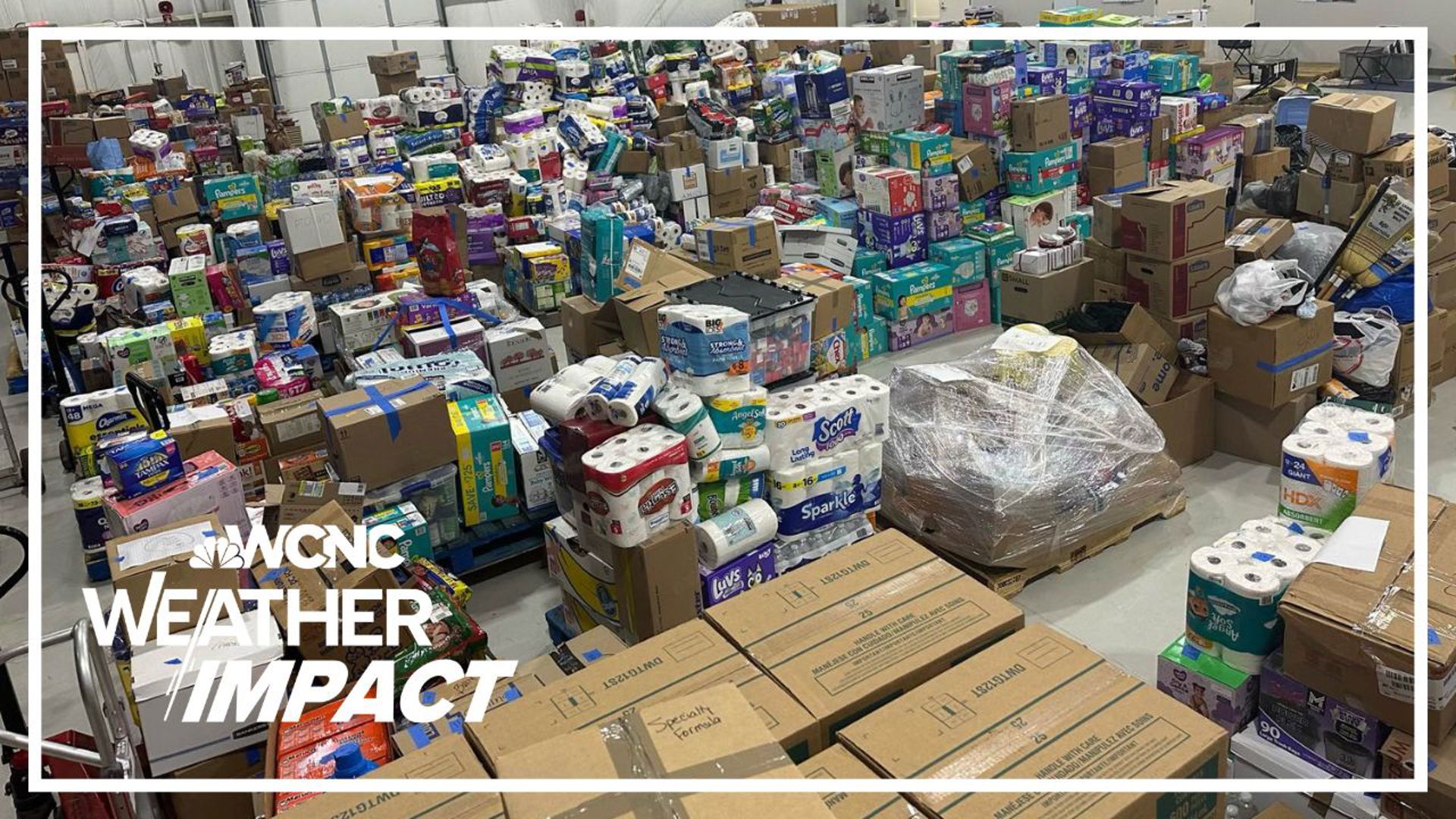CHARLOTTE, N.C. — The death toll from Hurricane Helene has risen to 175 and hundreds are still missing as a result of the storm and its aftermath, with many caught in historic flooding across southeastern states.
Parts of North Carolina have been devastated, with entire communities destroyed. At least 90 people are known to have died in the state. The storm unleashed the worst flooding in a century in North Carolina, dumping more than an estimated 2 feet (61 centimeters) of rain in places.
President Joe Biden visited North Carolina Wednesday and directed the Department of Defense to deploy up to 1,000 active-duty soldiers to reinforce the North Carolina National Guard, aiding in the delivery of supplies, food and water to isolated communities.
Many people are still missing, which has caused panic and frustration with friends and families who are trying to locate their loved ones. WCNC Charlotte wanted to break down some methods you can use to find them or alert authorities to look for them.
American Red Cross
The American Red Cross may be able to help you locate or search for a loved one. If you're looking for someone in South Carolina, the Red Cross has a form you can fill out. If you're searching for a person in North Carolina, here is the Red Cross reunification form to fill out. The Red Cross is also providing this service in Georgia, Tennessee and Florida.
The Red Cross Reunification teams will search through those forms and look for your loved ones. The organization has asked people to not fill out multiple forms for one person as that will just slow down the process. It has also requested people not call t
Red Cross Reunification teams are working as quickly as they can to make these connections. Please do not submit a duplicate request or call the 800 number to help us get to each request as quickly as possible.
United Way welfare check
The United Way has teamed up with North Carolina 211 to allow people to put in requests for missing persons, welfare checks or even rescues. The form to fill out is here. They are also requesting people to volunteer to help search for people impacted by the storms. To volunteer with the United Way, you can fill out this Volunteer Search Google Form to indicate skillsets, availability, and county they can volunteer in. Then, a local United Way will contact you with a volunteer opportunity.
How to effectively contact loved ones
The Red Cross shared the following tips for people who are trying to track down people after a natural disaster. After widespread power outages and lowered internet access, communication methods are often hindered. Here are some suggested steps to avoid those issues:
- Call during off-peak hours for the best chance of getting through.
- Send a text message, which may go through when phone calls cannot.
- Check your loved one’s social media pages (i.e., Facebook, X, etc.), as they may have already gone online to tell their story.
- Send an email.
- Call friends and relatives who may have already been in contact with your loved one.
- Call people and places where your loved one is well-known; neighbors, employer, school, place of worship, senior center, social club/center, union, or fraternal organization.
More than 150,000 households have registered for assistance with the Federal Emergency Management Agency, and that number is expected to rise rapidly in the coming days.
The widespread damage and outages affecting key communications infrastructure left many people without stable access to the internet and cellular service, the Federal Communications Commission said.
Teams from Verizon were working to repair downed cell towers, damaged fiber cables and provide alternative forms of connectivity across the region, the company said in a statement.
AT&T, meanwhile, said it launched “one of the largest mobilizations of our disaster recovery assets for emergency connectivity support.”
The efforts to restore service was made more challenging by the region’s terrain and spread-out population, David Zumwalt, president and CEO of the Association for Broadband Without Boundaries, said.
NBC and the Associated Press contributed to this report.

